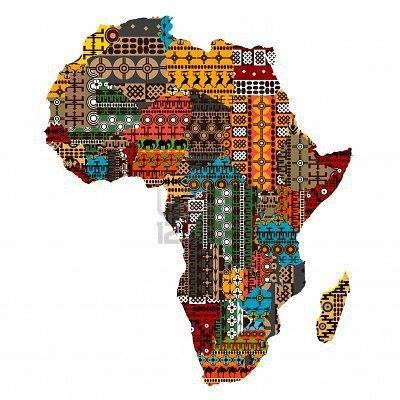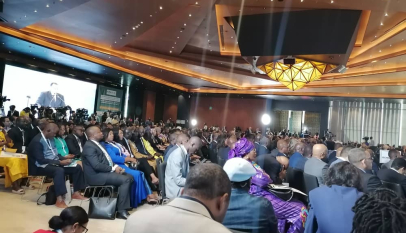When MINDS, AUDA-NEPAD celebrated 2020 Day of Africa’s Scientific Renaissance
In commemoration of the Day of Africa’s Scientific Renaissance 2020, the Mandela Institute for Development Studies (MINDS), in collaboration with the African Union Development Agency (AUDA-NEPAD), convened a webinar focused on reviving interest in the contribution of African Indigenous Knowledge Systems to modern science.

The concept of African Renaissance was first articulated by Senegalese scholar Cheikh Anta Diop in the 1940s, expressing what has been described as “a rather ambitious vision of rapid social, economic, and political development in postcolonial Africa.” The concept was in recent times popularized by former South African President Thabo Mbeki, thus gaining momentum in political and development discourse among the intelligentsia in Africa and diaspora.
Headquartered in Gaborone, Botswana, the African Renaissance Institute (ARI) was founded in 1999 as a hybrid African institution with the mandate to implement an ‘aggressive development agenda.’ ARI’s objective is “to establish the most effective way of mobilizing and networking Africa’s human resources, intellectual wealth, and enterprise for an African renaissance in the third millennium.” Its mandate covers issues as diverse as science and technology, agriculture, nutrition and health, culture, business, peace and security, as well as good governance.
The African Union Agenda 2063: The Africa We Want – a fifty-year blueprint for transforming Africa into the global powerhouse of the future, envisions a prosperous, peaceful, and integrated Africa, based on the ideals of Pan-Africanism and the vision of African Renaissance. Adopted in 2015, the genesis of Agenda 2063 was the realisation by African leaders of the need to refocus and reprioritise Africa’s agenda from the struggle against apartheid and the attainment of political independence for the continent, as championed by the Organisation of African Unity (OAU), the precursor of the African Union.
Consequently, as part of their contribution to advancing Africa’s development through Science, Technology and Innovation (STI), MINDS, and AUDA-NEPAD, among other partners, hosted a webinar discussion on the Day of the Africa’s Scientific Renaissance: June 30. Themed: ‘Day of Africa’s Scientific Renaissance: Africa’s Contribution to Science and Technology,’ discussions at the convening focused on reviving interest in Africa’s contribution to the fields of science and technology. This was aimed at highlighting history, language, and cultural identity as main drivers for reclaiming Africa’s power in the scientific world.
In his opening remarks, Dr Nkosana Moyo, founder of MINDS, bemoaned Africans’ sheer ignorance of the notable contributions of African Indigenous Knowledge System (African IKS) to modern scientific knowledge, hence, the prevailing inferiority complex among Africans about their capacity to contribute to major scientific and technological inventions.
Dr Moyo further argued that it was the spirit of healthy competition and cooperation that keeps developed countries of Europe and America advancing scientifically, urging Africa to also understand the dynamics of global competition and cooperation as well as owning her own narratives. “So, in many ways, competition create success and advancement, and therefore, from that perspective, it is a healthy thing,” he said.
Dr Moyo however said competition could also be very disempowering, in the sense that, it could create an impression that a certain group of people were incapable of achieving anything, and therefore charged Africans to take the responsibility of owning their narratives so as to advance “our scientific knowledge and create awareness among the next generation. Let’s own the narratives of our own history and achievements, so that we can instill confidence in our children, by telling them what their parents and grandparents had achieved, which would give them a sense of self-belief that they too can do it.”
Professor Hassan Kaya, director of DSI-NRF Centre in Indigenous Knowledge Systems (CIKS), based at the University of Zwazulu-Natal, South Africa, while giving an overview of science in the context of indigenous knowledge systems, said the goal of CIKS, which was a partnership of five South African institutions, was “to protect, promote and preserve indigenous knowledge systems as a new area of inquiry in the knowledge domain.”
Prof Kaya said the CIKS conceptualization of science was “the pursuit of knowledge including systematization in terms of knowledge production, sharing and protection, which is culturally and ecologically specific, with a number of implications including the fact that as long there is a diversity of cultures globally, there is no one science!”
Kaya decried the fact that colonialism had universalized and made dominant one knowledge system and one science, thereby marginalizing all other knowledge systems. He, therefore, underscored the fact that each culture had its own unique language, ecology, diversity and consequently, its own unique science. “Indigenous people have been responsible for the development of many technologies and have substantially contributed to the development of science as a pursuit of knowledge in their specific ecosystem.”
Amine Adoum, AUDA NEPAD’s director of programmes delivery and coordination, quoted the 2018 World Intellectual Property Organization (WIPO) report which showed Africa had registered far less intellectual patents compared to countries like China and the United States, with South Africa and Morocco leading the African continent. However, regarding industrial design filling, he said, although China, US and European countries were again leading, South Africa, Morocco and Egypt were ranked among top 10 countries in industrial design filling activities.
Mr Adoum therefore said there was a strong correlation between the number of patents registered by a specific country and the country’s political systems, GDP, and private sector, adding that the private sector was the biggest sponsor for patent production. “This clearly showed that the informal private sector which occupies largest sector of most African countries will not help in advancing science, technology and innovation,” he noted.
With regards to the developing countries currently leading in STI and subsequently, patent production, Mr Adoum identified five important factors responsible for their dominance, namely; strong public sector with transparent and solid governance; rich public investment to create necessary conditions for immediate research; extremely competent private sector including dynamic banking sector; topnotch education systems; and finally, a very strong cultural identity.
He described the above factors as not being rocket science, thus the very reason why African countries could also attain advancement in STI; however, he said, for African countries to advance in STI, they had to address challenges such as bad governance, weak and dysfunctional public sector, dysfunctional private sector, as well as weak banking systems, which would subsequently lead to the advancement of STI on the continent.
Prof Muxe Nkondo, a member of council of the University of South Africa (UNISA), while speaking on the role of language in STI, underlined the value of African languages, African knowledge systems and African culture in modern STI. Prof Nkondo, thus, sought for the review of language policies and strategic use of African languages to disseminate complicated ideas such as COVID-19, asserting that only 10% of Africans could understand foreign languages.
Consequently, he recommended the creation of what he called African Covid-19 ID Dictionary: a comprehensive dictionary identifying frequently used terms in discussions about coronavirus and translate them into African languages. “If we really want to mobilize Africans, if you want them to be part of the global community, it can only be possible through their languages, not through English, not through French,” he said.
Similarly, Dr. Aunkh Chabalala, director of the Indigenous Knowledge-Based Technology Innovation Unit at South Africa’s Department of Science and Technology (DST), discussed the role of African history in science, noting how ancient African scientists such as Im-Hetep, Perit Ptah, Nesut Tiye, paved the way with the basis of modern scientific knowledge. He said, part of his work was ensuring African IKS were systematized and made pragmatic, noting that unless African IKS were systematized, they would still be seen as inferior, superstitious and obscure.
In her closing remarks, Mrs Graca Machel, chairperson of MINDS, applauded the cooperation between the institutions behind CIKS for their work in advancing science in Africa, affirming the need for more dissemination of their work to the public. She however, decried the reality that although ancient Africa was the origin of science, the continent’s contribution to Modern Scientific Knowledge System (MSKS) was not being acknowledged.














